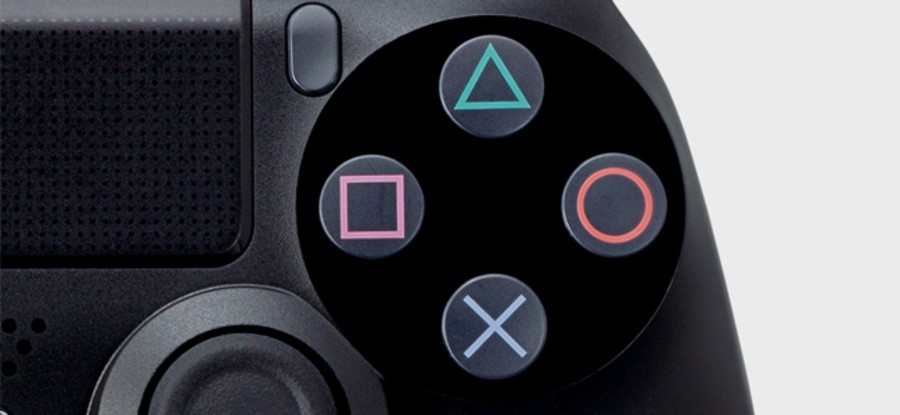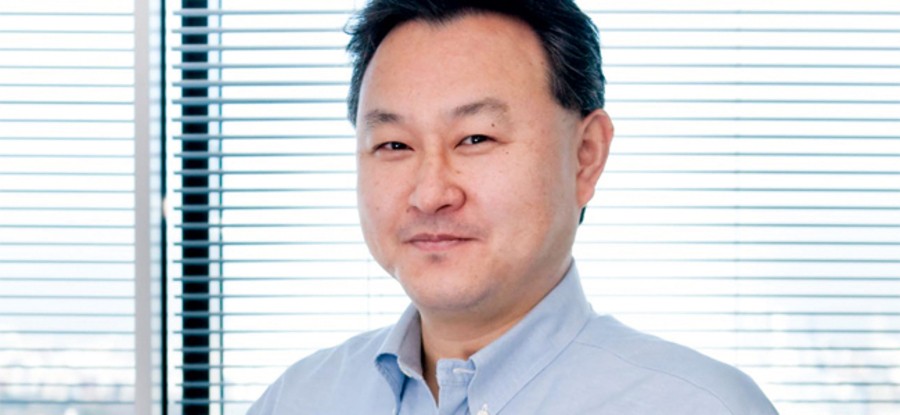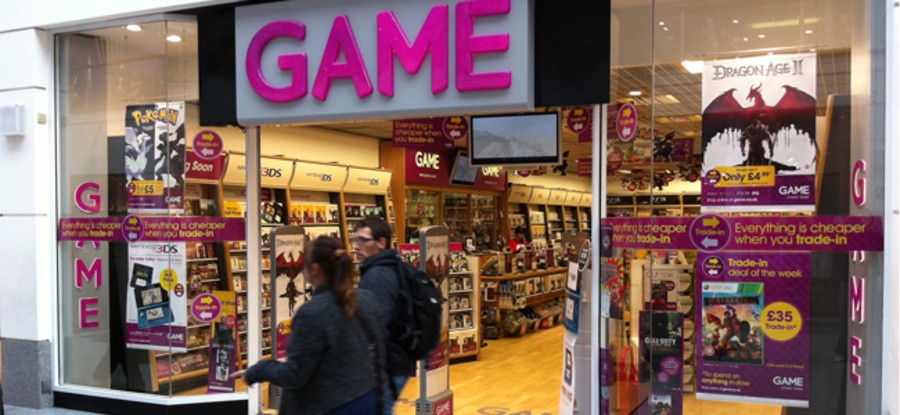
We don’t think that it’s entirely unfair to say that Microsoft’s big Xbox One unveiling didn’t quite go to plan. While the Redmond-based manufacturer clearly had the mainstream market in its sights, we’d like to assume that it wasn’t planning on completely alienating its core audience in the process. It’s still too early to say what the long term repercussions of last night’s entertainment-driven press conference will be, but the company’s never been under so much pressure to deliver at E3.
And it puts the PlayStation 4 in an enviable position. We fully expected the system to have lost lots of mindshare over the past 24 hours – Monday’s hardware teaser suggests that Sony anticipated the same – and yet it feels like the console’s actually profited from the Xbox One’s reveal. However, that doesn’t mean that the machine is in the clear by any stretch, leaving the Japanese giant with plenty to prove in the lead up to launch. But what can it learn from Microsoft’s bungled announcement in order to ensure that it exits next month’s Los Angeles event on top?
Subscribe to Push Square on YouTube166k

Focus on games
First impressions are important, and last night’s Xbox One reveal left many gamers feeling that they aren’t Microsoft’s priority anymore. Regardless of whether that’s true or not, Sony has a huge opportunity to capitalise on the goodwill that it’s built up among the hardcore audience over the past few months by pandering to their needs. It can do this by using its pre-E3 press conference as a platform to promote games rather than software and services. Having already dedicated its PlayStation Meeting event to games, it could earn a colossal amount of goodwill by simply repeating the gesture.
With the mainstream media in attendance – and concerned shareholders watching from the sidelines – we suspect that Sony may be tempted to tout the media capabilities of its own machine. But with hundreds of thousands of the most hardcore gamers tuning in, the platform holder must put the tastes of its fanbase first. There’ll be plenty of opportunities to communicate the system’s broader feature-set either closer to launch or during a separate show at E3. For the main, livestreamed press conference, though, it’s imperative that the firm places all of its attention on games.

Send the right message
While the backlash to last night’s Microsoft event can be mostly attributed to the contents of the press conference itself, the muddled messaging afterwards certainly hasn’t helped. Immediately after the show, Microsoft corporate vice president – and former Sony favourite – Phil Harrison insinuated that the Xbox One will essentially block used games. The company then issued an ambiguous statement through director of communications Larry Hryb that shied away from that notion, before Harrison reconfirmed it in later interviews. At the time of writing, we’re still not entirely sure what Microsoft’s stance on pre-owned content actually is.
And that’s down to bungled messaging. It’s rare for Microsoft – which is ordinarily such an organised company – to make such a gaffe, but it’s something that Sony must be aware of ahead of E3. With a renewed emphasis on used games and always-on connectivity, the Japanese giant is going to find itself grilled by the press on such topics all over again, and it must have a consistent, clear, and cohesive stance to convey to consumers. The drama surrounding the Xbox One right now may not be as bad as it seems, but even if that’s the case, Microsoft’s going to have to extinguish a lot of flames before it wins back the goodwill of the fans that it’s burned over the past 24 hours. Sony, for its part, must avoid a similar scenario.

Avoid the anti-consumer approach
Let’s be perfectly honest: the best way for Sony to eschew any kind of backlash on used games is to state that it’s heading in an entirely different direction to Microsoft. From what we understand, the Xbox One will allow you to sell pre-owned titles, but those that purchase them will have to obtain a new license equivalent to the cost of the game itself in order to unlock them. The PlayStation maker, though, can avoid criticisms in this area by simply not adopting the practice. It’s already said that used games will work on the PS4, but clarifying its approach would do wonders in the eyes of consumers.
While big publishers may not necessarily be impressed with the notion, it will earn the company a lot of goodwill among retailers such as GameStop. As a result, a greater store presence for the PS4 could help to increase the console’s install base, which in turn will mean that developers, no matter how disgruntled, will have no option but to support the platform. We already know that the console will not require an online connection – the Xbox One must be connected once every 24 hours – but Sony must be more forthcoming with its used games approach in order to avoid getting dragged into the backlash that’s currently surrounding Microsoft’s machine.
Are there any further lessons that you feel that Sony could learn from the response to Microsoft’s Xbox One unveiling? Let us know in the comments section and poll below.
Which of the following lessons do you think is most important to the PS4? (56 votes)
- Put games ahead of media and services
- Send a clear and cohesive message to consumers
- Avoid anti-consumer principles such as used game blocks
- I actually think all of the above are important
Please login to vote in this poll.





Comments 30
I think Sony just needs to keep hitting home with the games. The negativity regarding the Xbox One is providing them with the perfect opportunity to really blow E3 wide open. We need Cerny on that stage, we need gameplay demo after gameplay demo, and we need confident execution.
Being clear on their used games policies is also important. If Sony don't adopt any anti-consumer principles then they already have a gigantic advantage over Microsoft if these reports are to be believed.
I hope Sony doesn't have an anti-used game policy. Microsoft probably has some information from game developers on whether or not Sony will have an anti-used policy, otherwise Microsoft would just be digging it's own grave for XBOX One.
@Ares1985 As far as I understand it, so far, Sony's said that the console will support used games. However, Microsoft is using the same language. The catch is that Microsoft is — at the moment — going to force people who purchase a used game to buy a new license to actually play it.
It's interesting that Microsoft's revealed this days after EA abolished the online pass, isn't it? /conspiracy theory.
That's the issue I see, if EA dropped online pass.............there is no way PS4 is not going to have some sort of block on used games, or Sony will leave it up to the developers to add encryption to the discs and a one-time activation. If Sony leaves it to the publishers to decide if it can be sold at a place like gamestop.....guess who looks like the bad guy, not Sony thats for sure. Somehow I have a feeling GameStop is actually part of this HUGE ecosystem and there used/new game sales are about to hit a new level with digital buying. Trade in a Game you bought for $25 GameStop digital credit......GameStop then gets your code that you used and it becomes a token of some sort. GameStop then can have a physical supply of Tokens for distribution to that game. 5%-10% of the sale goes towards the game devs.
See what I mean. I think that GameStop is going to somehow have a new/used trading market app on the new consoles and we can (for a fee) trade in a game we already bought to get credit and spend on other games.
There is NO WAY EA is letting Sony have their games on the PS4 without some sort of DRM to nail everyone with.
Games games and games. No mixed messages, straight to the point facts. And then go into detail on those. Success!
@get2sammyb - Yeah, something about online with EA and MS is well amiss. I dont think anybody at MS actually knows how things will work in 6 months. Very fluid situation.
Sony needs to be upfront and honest, which will probably never happen though.
@rjejr To the company's credit, they've definitely followed this mantra thus far. At the end of the day, though, they are just another corporation eyeing their bottom line.
Sony also was talking about "do you want us to do that" and being consumer freindly on the subject of used games so that points to no strings attached to PS4 with used games. They proably have a lot of customers to take away from Microsoft with that policy too so it makes sense from business perspective.
@Jaz007 I still wonder how EA is going to allow usedgames wwith them removing online passes.
I want to know exactly what features are available at launch (not some years into its lifespan!!!)
all the above, but the paying a fee for used games, that is hand down the worse. Microsoft, go back to the drawing board, you messed up.
So far, Sony has been very upfront about the PS4. I expect them to keep it up well into the next gen, because doing so would all but ensure they're victory. I'm not worried about them in the software department as long as they stick to their word and keep Shooters to a minimum.
I think sending a clear message on what their console is and what it does should be a priority. If Sony wants to market this console to the core audience they need to make it clear that the games don't take a back seat to the other features and that they're there to enhance your experince, not the other way around. We've already seen what brand confusion can do when it gets out of hand.
They also need to avoid coming between the consumer and their products as much as possible, keep things as user-friendly as possible.
@charlesnarles Good point!
@ViciousDS EA might not think it would be profitable to skip PS4 because Sony won't them restrict used games. Some games had didn't have online passes on Wii U (some from EA), but had them on PS360 for some reason. There is a good chance strong arming them into agreeing to no use game block is possible. Console makers have forced third-partys to do a lot of things without losing them.
Ahhahahaha, this is great! Xbox is purposely killing itself, and not due to hardware failure this time~
-sits back with a bag of popcorn and watches-
I think they're all important really. I do think that if Sony push a 'consumer friendly' attitude at E3 by displaying greater flexiblity with PS4 connectivity, and not imposing fees on used games, that this will be a huge selling point for core gamers. If I were Sony, considering the degree of vitriol most gamers seem to have for Microsoft atm, I would really be making the message of a 'consumer friendly' approach a priority for all major upcoming presentations.
Showing off what the PS4 is capable of from a specs. perspective would also be a good idea. It's capable of doing more than XBox1 from a graphics perspective, so I think they need to show something which really pushes the PS4 and shows what it's capable of doing from a gaming perspective as well.
Wii U, PS4 and Xbox One have a lot to prove at this years E3. There is ambiguity on the features of the console and they are things that could lead a gamer to not want the console such as games and second hand games. Wii U has to prove that the games are coming, Xbox One has to prove the games even exist and PS4 has to prove that the console will actually be worth buying.
"Put games ahead of media and services."
GAMES GAMES GAMES!!!
@Trikeboy So far, the PS4's design is all that people are waiting for. They know about it's features and they know about it's games - so they're in a pretty good place right now.
Quite frankly, both Nintendo and Microsoft are pushing people away. Blocking used games and enforcing copyrights on Let's Play videos featuring their games, respectively. While all that's happening, Sony is looking more and more like the good guy.
Still, E3 is very important and as much as everything they're doing makes me want to do so - I won't count Microsoft out just yet. Nintendo is apparently opting out of E3 this year (unless they changed their minds).
Couldn't EA still have some sort of policy that still allows PS to not mess with used games? I know they did away with the online pass, but if PS could figure something out that would make EA happy, it would seal the deal and bury XBox One.. People love that EA did away with the online pass, but I never heard much negativity about them when they were still around.. I'm a huge EA fan and it didn't hurt my feelings
@TheRealBatman Wow, that just reeks of fanboyism.
1. PS4 has lots of work to do at E3 before I decide to upgrade my PS3. It is a nice looking machine but I saw nothing during the reveal that makes me want to upgrade. All of the games that interested me were either coming out on PS3 or Wii U. Why should I spend yet another £300 when I can spend £40 to play on a system I already own?
2. Nintendo have clamped down on making money on Lets Play videos because people are making money on their IPs. Nintendo has every right to claim money from that. They own the IP, they get to have a say in how they are used. They are fine with people not making money off of them. Other companies have flat out banned Lets Play videos, Nintendo are actually being fairly decent about it.
3. Nintendo will be at E3, they will just not do a big flashy presentation. The games will be on the show floor for attendees to play.
@Trikeboy I'll keep these as short as possible because doing this on a phone is torture.
1. If anything I said "reeks of fanboyism", then you obviously have no idea what a fanboy is.
2. You may not be interested in upgrading, but that doesn't mean that Sony didn't do a great job with their reveal. Could they have done more? Yes. But it was still an overall solid presentation.
3. I never said that Nintendo didn't have the right enforce copyrights on Let's Plays, I said that the action was pushing people away. Sure they're going about it in a good way, but it doesn't change the fact that people are upset.
4. Okay, that's all I needed to know.
I will quote my wife who happens to be a hardcore gamer like me. "What the hell was that? Don't you dare buy this crap." Moving on the the matter at hand.
In my opinion Sony should keep focusing on a worldwide audience. The Xbox One reveal left me with a feeling that it was presented with only the US market in mind. Most of the "innovations" and services they presented were for the US market only. Apart from that, they shouldn’t make the gamer feel that THEY control your console like Microsoft did (always on, always connected Kinect, games check in, second hand games are “taxed”). I don’t like where Microsoft is heading.
sarcasm One more thing. Sony should start making PS4 exclusive films, since they own most of the movie industry. Seriously Microsoft what were you thinking.
I agree that the PS4 reveal was good, and definitely much better than Xbox One, it is just that the thing I look for when upgrading my current hardware is games. There were a lot of games in the presentation that were meh, and some that genuinely interested me like Watch_Dogs. Then the news came out that the games I thought looked amazing were coming out on hardware I already own. Why buy a new system if I can get them for a machine I already own. I will say that I am far more interested in Sony than Microsoft at this time.
@Sutorcen You are very right that Microsoft only catered to the American audience in the presentation. I wonder how many of those features will be available to the world wide audience. Honestly, the three horse race that is Sony, Nintendo and Microsoft will probably become a two horse race with only Sony and Nintendo still competing.
Why are you saying Sony should learn this? Didn't they already prove to you they understand this? There conference to show off their new console was all about the games. I don't think you need to worry about this at all. I guess Microsoft cares more about selling to non-gamers though.
I am blown away that MS is going through with essentially blocking used games. Forget about not showing off enough games in their meeting and focusing too much on entertainment apps. Blocking used games is the tangible, unbelievable, insane difference that will absolutely crush MS if Sony doesn't follow suit. This is that tangible difference that is actually significant enough to cause people to switch loyalties. It's really amazing.
If everyone would quit buying ea crap, then they wouldn't do there practice of charging to play, buy there crap and they will do it, boycott them like I have, haven't bought an ea game in two years, and from what I've seen lately, I'm not missing out
I too believe that their focus should be strictly on games and save all the extras towards the end of the show. but right off the bat they should come in with gameplay demos of 1st party title, exclusives, and block buster titles. there's nothing wrong with features being added to a console but that should never overshadow the gaming element. That's exactly what MS did and i don't have to explain the publics reaction. IGN had a poll of over 76,000 gamers and 75% thought Xbox One was horrible. That's a really good sign for Sony.
Who is aware that in 2007 Sony re-released the first Playstation in a smaller unit called "Playstation One". Image: http://4.bp.blogspot.com/-TM1U7nCPu9A/T81orCfvGiI/AAAAAAAACNY/sNwyHskvD6Q/s1600/PS1+PS+VITA.jpg??????????????????????????????????????????????????????????????????????????????????????????????????????????????????????????????
Show Comments
Leave A Comment
Hold on there, you need to login to post a comment...